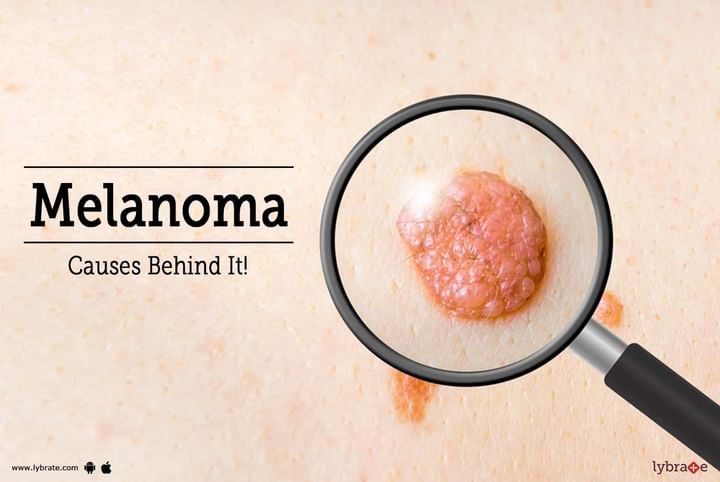Get the App
For Doctors
Login/Sign-up
Last Updated: Oct 23, 2019
BookMark
Report
Melanoma - Causes Behind It!
Melanoma normally happens on the skin, yet may once in a while may happen in the mouth, gut, or eyes as well. In women, it generally happens in the legs, while in men they are most regularly on the back.
Sometimes a mole may also raise your concern by increasing in size, developing abnormal edges, a change of color or itching and irritability.
So, what are the causes of this condition? Read on to find out:
- History: When you have a history of sunburns or if you are particularly susceptible to them, then you may end up with melanoma. Blistering sunburns and too many moles can also lead to this condition. Dysplastic nevi or many unusual modes with irregular shape, size and colour also indicate an increased risk of falling prey to melanoma. Also, if you have had a family history of this disease, then there are chances of contracting the same, as you may have inherited the carrier gene too.
- Skin cell development: The general process of skin renewal includes the rise of new skin cells to the surface in a routine and continuous manner. This skin cell development can get hindered due to a number of reasons like DNA damage. When this happens, the dead skin cells accumulate instead of falling off to make space for the new cells, and this can cause a mass of cancerous cells to form.
- Fair complexion: Having an excessively fair skin tone may point towards lack of melanin or pigment in the skin. This erodes the protection that one naturally gets when exposed to the harmful ultraviolet rays of the sun. This can increase the risk of contracting melanoma. Also, people with freckles, red or blonde hair, and even blue eyes can fall prey to this condition.
- Immune system: Much like many other diseases and cancers, this condition also greatly depends on the state of your immune system. Patients who have recently recovered from organ transplants, other such procedures, and diseases can find themselves at the weak end of their immunity, which makes them susceptible to such kinds of cancer. If you wish to discuss about any specific problem, you can consult a dermatologist.



+1.svg)
